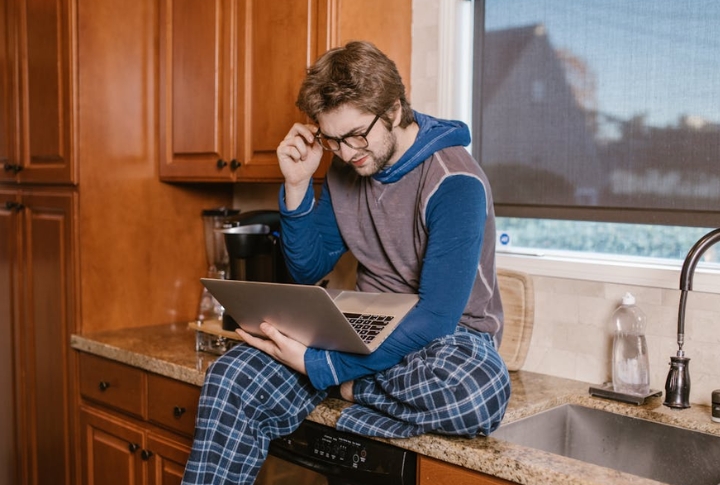
Freedom from the office was once the ultimate goal, until it began changing us in ways we didn’t expect. The longer we stay home, the more work sneaks into every corner of life. What does that constant closeness do to our minds and routines? Let’s discover the side effects of “overworking” from home and make some changes.
Blurred Work-Life Boundaries

There were times when work ended at 5 PM. Yeah, good times. Now the office is your couch, the phone is your boss, and the dinner table is the new conference room. Without that sweet commute buffer, many remote workers clock extra hours without even realizing it.
Social Calibration

At first, skipping small talk feels like bliss. No awkward watercooler chats? Sign us up! But soon, you realize your cat isn’t exactly great at brainstorming. Virtual check-ins can’t replace human energy, and before long, you’re missing the random hallway banter that used to keep you, well, socially human.
Career Visibility

Remote work can sometimes feel like you’ve turned into an office ghost: always typing, never seen. Those spontaneous hallway convos and “Hey, great idea!” moments are gone. Without those, it’s harder to get noticed or casually remind your boss you still exist.
Ergonomic Health

Sure, working from the couch sounds comfy until your back files for divorce. What starts as a casual laptop session turns into a full-blown posture nightmare. Before you know it, you’re popping Advil like breath mints and wondering why your shoulders sound like bubble wrap every time you move.
Team Cohesion

Remember those shared lunch memes? Now, you’re left with scheduled “fun” Zoom sessions that feel about as natural as a forced smile in a family photo. The camaraderie just isn’t the same, no matter how many virtual trivia nights you host.
Increased Cognitive Drift

Your brain used to handle meetings and tasks like a pro. And at the moment, it’s juggling endless video calls and 47 Slack pings. Toss in a sudden urge to reorganize the sock drawer mid-project, and productivity quietly leaves the chat.
Overreliance On Digital Feedback Loops

No office high-fives or reassuring nods anymore, just emojis and typing dots. Remote workers start hunting for validation in the form of quick replies and reaction GIFs. You find yourself refreshing messages like it’s social media, desperately hoping someone “hearts” the spreadsheet update.
Emotional Flattening

After enough solo workdays, even your emotions start working from home. The highs aren’t that high, the lows feel meh, and everything else is just… fine. You’re not sad or happy. Actually, you’re just reacting to life with the same enthusiasm as an office plant.
Delayed Conflict Resolution

In person, a five-minute chat could fix a misunderstanding. Online, it’s a 27-email saga starring confusion and passive-aggressive punctuation. Without tone or body language, even “sounds good” can feel like a threat. By the time it’s resolved, nobody remembers what the argument was about.
Loss Of Professional Rituals

The daily rhythms that once gave structure with coffee runs and quick hellos are now replaced by logging on in pajamas. Team celebrations happen in chat threads, and birthdays get digital balloons. It’s hard to feel festive when your party hat’s a Zoom background.
